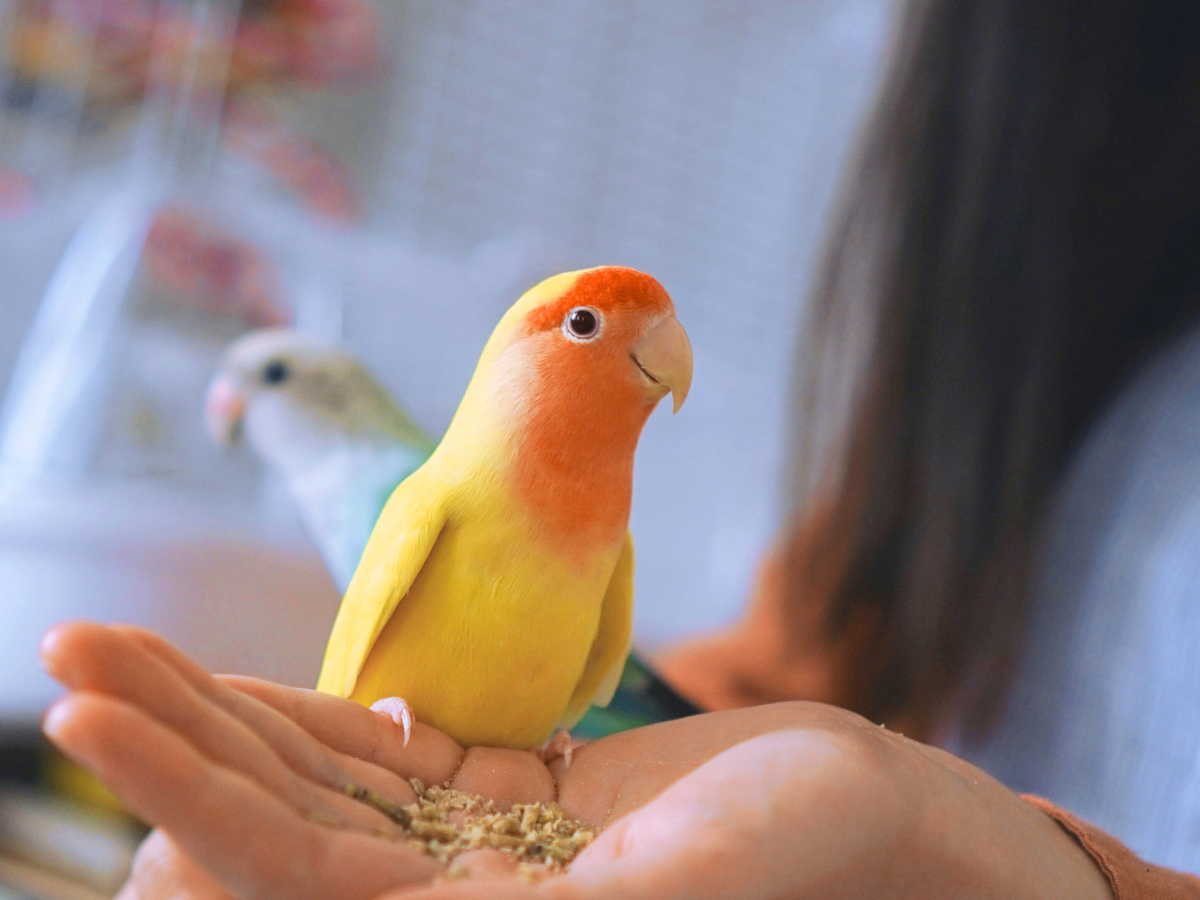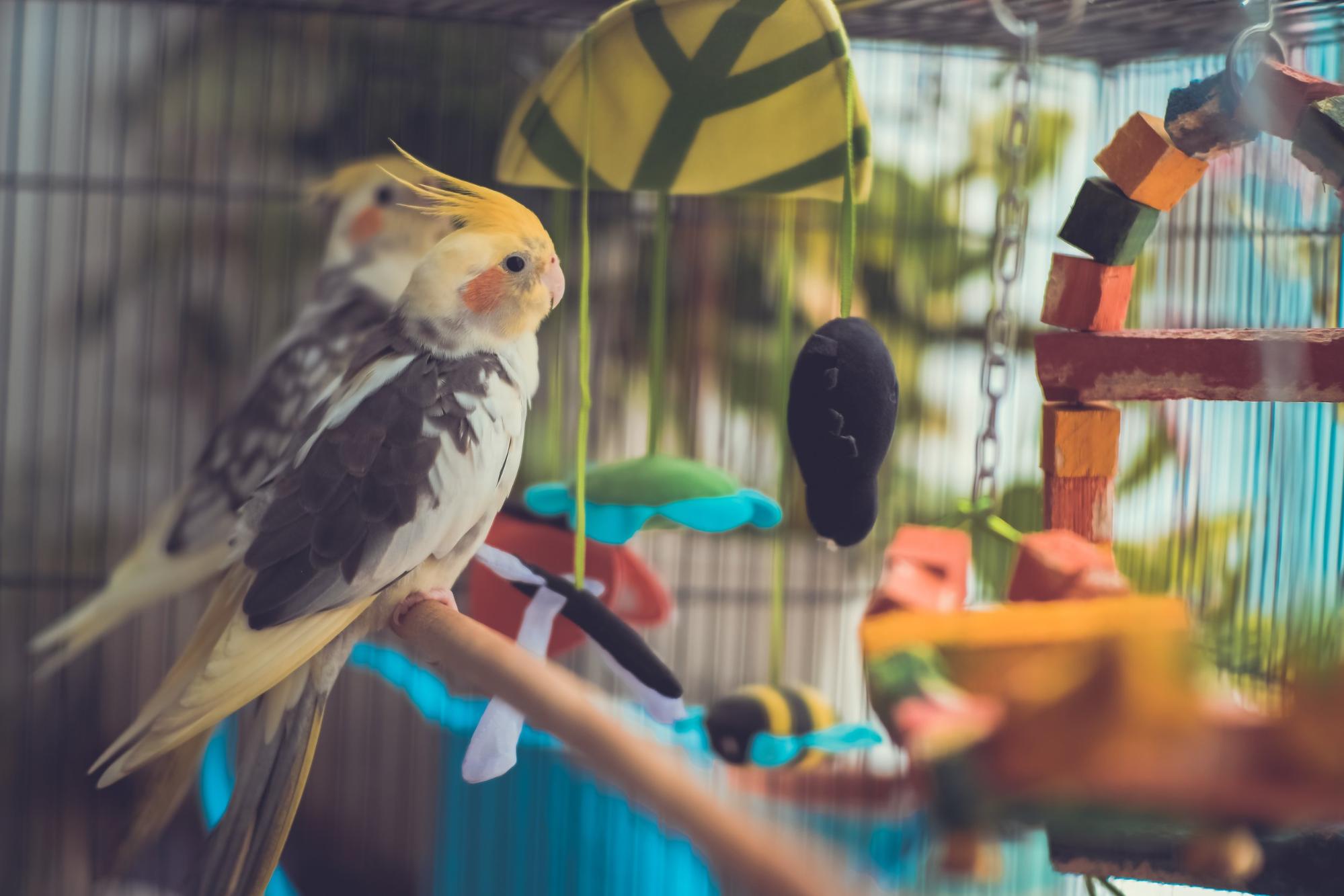Bringing A Pet Bird Home? Don't Miss These Tips
Article - 5 min read • Updated Apr 21, 2025
Medically reviewed by Dr. Arman Chen, BVSc (Qld.), BSc (Leic.)

Welcoming a pet bird into your home is exciting, but it also comes with responsibilities. From choosing the right cage to setting routines, bird care involves more than just feeding and cleaning. Birds are intelligent, sociable creatures who need both physical comfort and mental stimulation to thrive.
Whether you're a first-time bird parent or giving a feathered friend a second chance, here's a practical guide on how to help your bird settle in smoothly and live happily in your home.
1. Choose the Right Bird Cage Size & Home Location
Buy a cage that’s appropriately sized—at minimum, the width and length should be twice your bird’s wingspan. More space is even better to allow for comfortable movement and wing-stretching.
Where to place the cage? Birds enjoy social interaction, so ideal spots include:
- Your living room
- A shady balcony
- Any shared family area
In general, you should avoid spots with rapid temperature or humidity changes:
- Bathrooms: Poor ventilation, high humidity, and lingering fumes from cleaning agents are harmful.
- Kitchens: Non-stick cookware releases toxic fumes when overheated, which can be fatal for birds.
"Birds don't sweat. They regulate their body temperature by panting. This increases the amount of airflow over the air sacs, which removes heat through evaporative cooling. That's why good ventilation is so important." - Dr. Arman Chen, BVSc (Qld.), BSc (Leic.)
2. Give Your Bird Orientation Time & Safe Socialisation
Let your bird adjust to their new surroundings slowly. For the first few days:
- Don’t handle them—just feed, talk gently, and clean the cage.
- Introduce them gradually to other household members.
- Avoid loud noises like vacuuming or parties.
Do you have other pets at home? Never leave your dog or cat unsupervised with your bird. It can take weeks or months for peaceful co-existence, and it’s okay if they never become best friends.
3. Establish a Consistent Routine for Feeding & Rest
Birds thrive on routine (just like our kids). A predictable schedule helps them feel secure and stay healthy.
Pro Tip: Cover the cage at night with a breathable fabric to block out light and support natural sleep cycles. Birds need around 10–12 hours of sleep daily.
4. Feed a Balanced Diet, Introduce New Foods Slowly
For the first couple weeks, make sure you feed your bird the same kind of food as the pet shop or fosterer. It helps him to be less stressed out if he has something familiar to munch on. If you wish to introduce new food, do it gradually and in small amounts mixed with his current feed.
We recommend that you feed your bird a variety of food to ensure a balanced and nutritious diet. For example, love birds need a diet consisting of 75-80% pellets and 20-25% fruits & veggies.
Seeds are occasional treats. Treat them like candies and chocolates, these are treats not main meals.
On the hand, sprouted seeds are an excellent source of nutrition for your birds. And if you do it yourself, you will have access to a crop of fresh, good and cheap sprouts! Check out this handy how-to guide on seed sprouting.
5. Provide Plenty of Clean Drinking Water
Place water bowls in a few spots inside the cage—one on a perch, another on the floor. Avoid placing them near your bird’s usual poop areas to keep the water clean.
6. Stimulate Your Bird with Toys, Play & Perches

Birds need enrichment! Provide chewable toys, climbing gyms, mirrors, and natural wood perches to encourage exploration and mental stimulation. Rotate toys regularly and inspect for wear and tear.
Avoid:
- Frayed ropes or tassels
- Worn-out toys and perches
- Covers with loose threads or torn fabric
Better options:
- Tree bark or natural wooden perches
- Toys with bells or safe plastic components
Final Thoughts: Patience Pays Off
With proper care, your bird will adapt and eventually flourish in your home. They may even become affectionate companions! Creating a safe and stimulating environment not only helps them settle in, it also sets the foundation for a rewarding, long-term bond.
As you are monitoring your bird's health and wellbeing, it will be good to refer to this body conditioning score chart to check if your pet bird is too skinny or may be overweight.
You can always bring your birds to Gaia Vets, we have a highly experienced vet team that routinely treats birds of all kinds for ailments ranging from parasitic infections to emergencies such as egg-binding. Contact us today at 6950 4533 (Jalan Besar) or 6727 7511 (Parksuites, Holland Grove Rd) —we’re here to help.